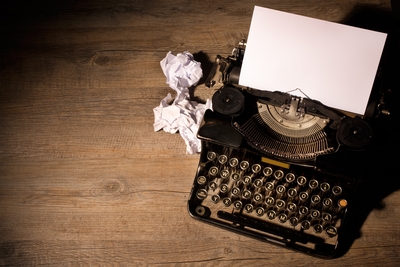I teach Creative Writing in the continuing education programs at both Ryerson and the University of Toronto. My students know that I also work as a freelance editor, so they often ask me whether they ought to hire one. Sometimes they even want to hire me, but generally I refuse. Why? Because first drafts from first-time authors are simply not ready to be edited by anyone other than their author.
The editor will be stymied by too many basic problems of narrative  structure, pacing, character development, probability and dialogue, and will wonder how far to go in confronting the fledgling writer about them. Faced with what looks like the slaughter of his or her first-born, the writer, in turn, is likely to be overwhelmed with despair, or rage, or both.
structure, pacing, character development, probability and dialogue, and will wonder how far to go in confronting the fledgling writer about them. Faced with what looks like the slaughter of his or her first-born, the writer, in turn, is likely to be overwhelmed with despair, or rage, or both.
Here’s a letter I wrote to one of my students suggesting a practical sequence of revision:
Congratulations on finishing the first draft of your novel! Lots of people start out with that ambition but very few actually get there. But here’s the part you won’t want to hear: In my experience, the first draft is exploratory, not final; it teaches you what you were writing about and then reveals to you all the places you rushed, or faked it, or left essential things out, so that you can now go back and fill them in. You aren’t close to having realized your whole story yet, so your manuscript is not ready for the services of a professional editor.
Put it away for a couple of months at least, and then read it slowly, on paper, with a pencil in your hand. (Even better, read it out loud.) Don’t let your imagination fill in what’s missing or skip ahead — make sure that everything that a first-time reader requires to make sense of the world you’ve created and the characters who inhabit it is actually there, on the page. Make all the necessary corrections, however long it takes. (You may find yourself having to write a new draft of the book.)
Once you’ve fixed up all the stuff that’s obvious to you, give two copies to two different readers who are not family members likely to be preoccupied by reading between the lines in order to understand your relationship with them. Choose people who are intelligent critics. Promise that you’ll still be friends with them, no matter what they say.
Remind yourself of that promise when you get their feedback. Get drunk, or binge on chocolate, or watch Casablanca and weep yourself silly. Whatever gets you through the night.
Wait at least a week. Read what they said again. Take it seriously. Write a third draft of your novel trying to solve all the issues they have pointed out.
Now you are ready to engage the services of an editor and benefit from his or her experience of the publishing world.
Discover more from The Editors' Weekly
Subscribe to get the latest posts sent to your email.
